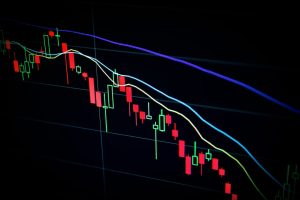High frequency trading (HFT) has been a game-changer in the world of finance, and foreign exchange (forex) markets are no exception. With the rise of HFT, forex scalpers have had to adapt their strategies to keep up with the rapidly changing market conditions.
Forex scalping is a trading strategy that involves making multiple trades in short timeframes, typically holding positions for just a few seconds to a few minutes. The goal of scalping is to make small profits on each trade, but to do so consistently throughout the day. Scalping relies on quick decision-making and the ability to react to market movements in real-time.
HFT, on the other hand, is a form of algorithmic trading that relies on computer programs to execute trades at high speeds. HFT strategies involve analyzing market data and identifying patterns that can be exploited for profit. HFT traders aim to make small profits on each trade but to do so at a much higher frequency than scalpers.
So, how does HFT affect forex scalpers?
One of the main ways that HFT impacts forex scalping is by increasing market volatility. HFT algorithms are designed to react quickly to market movements, and they can magnify the impact of even small fluctuations in currency prices. This means that forex scalpers need to be able to react quickly to sudden market movements, or risk losing out on potential profits.
Another way that HFT affects forex scalping is by increasing competition. HFT firms have access to sophisticated trading technology that allows them to execute trades faster and more efficiently than individual traders. This can make it more difficult for forex scalpers to compete in the market, as they may be at a disadvantage when it comes to execution speeds.
In addition, HFT can also lead to increased market fragmentation. HFT firms often trade on multiple exchanges and venues simultaneously, which can lead to differences in prices and liquidity across different markets. This can make it more challenging for forex scalpers to find the best prices and execute trades quickly and efficiently.
Despite these challenges, forex scalpers can still succeed in a market dominated by HFT. One way to do so is by using advanced trading technology that can help them to execute trades quickly and efficiently. Some forex brokers offer trading platforms that are specifically designed for scalping, with features like one-click trading and customizable order types.
Another strategy that forex scalpers can use is to focus on trading during periods of low volatility. HFT algorithms are designed to take advantage of market movements, so by avoiding volatile periods, scalpers can reduce the impact of HFT on their trading strategies.
Finally, forex scalpers can also benefit from using advanced analytics and data analysis tools to identify patterns and trends in the market. By analyzing historical data and using predictive analytics, scalpers can gain insight into market movements and make informed trading decisions.
In conclusion, HFT has had a significant impact on the world of forex scalping. While it has increased competition and market volatility, forex scalpers can still succeed by using advanced trading technology, focusing on low volatility periods, and using advanced analytics to identify market trends. With the right tools and strategies, forex scalpers can continue to profit in a market dominated by HFT.





